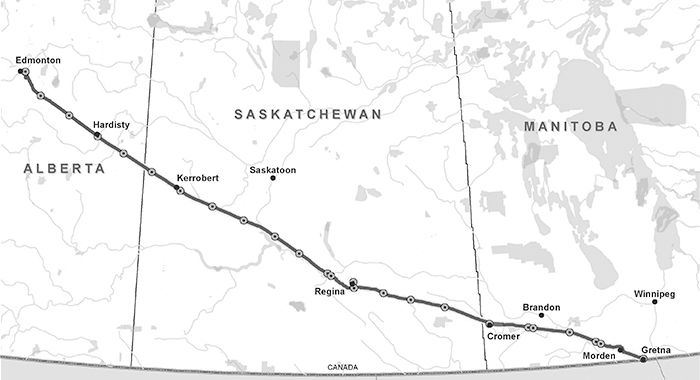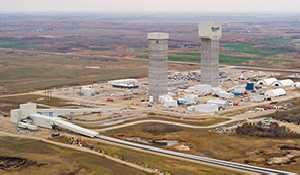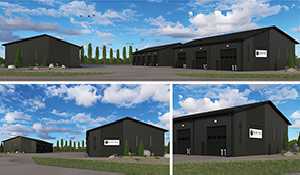NEB gives Enbridge Line 3 replacement the green light
May 3, 2016, 2:04 am
Kevin Weedmark


The National Energy Board (NEB) has concluded that the Enbridge Line 3 Replacement Program is in the Canadian public interest and will recommend project approval to the federal Governor in Council.
The Line 3 replacement project would be a major project across southeast Saskatchewan and southwest Manitoba. If approved, the project will go ahead in 2019.
The Enbridge right-of-way runs through Langbank, Maryfield, and Cromer in the local area.
The Line 3 replacement project would involve placing an entirely new line along the right-of-way.
The NEB decision follows a public hearing process that included an exhaustive scientific and technical examination of all the evidence brought before the NEB panel.
In recommending approval of the project, the NEB noted that the project will replace an aging pipeline with new pipeline constructed to modern standards and therefore make an existing pipeline safer. The NEB has imposed 89 project-specific conditions to enhance public safety, environmental protection, and consultation between the company and stakeholders.
The company proposes to operate the new pipeline at the original pipeline’s capacity of 760,000 barrels of oil per day. The majority of construction will occur within a right of way that parallels and overlaps existing Enbridge rights of way, including the Enbridge Mainline corridor.
Steve McLellan, president of the Saskatchewan Chamber of Commerce, said he welcomes the NEB decision and hopes the federal government will give final approval soon.
“Politics shouldn’t enter into it,” he said. “The National Energy Board has dealt with the small-p politics. Are the communities comfortable? Yes. Have they been consulted? Yes. Is there any undue risk? No. Move on. Carry on. The issue with Line 3 is south of the border there are some process issues there that involve some big-P Politics.”
McLellan said that he feels Canadian companies are held to a high standard, and pipeline delays mean Canada is importing oil from producers which are not held to such a high standard.
“We have our oil companies and our pipeline companies having to jump through hoops,” he said. “Do we ask that of the Saudi oil producers? Do we ask that of the South American oil producers?”
“That double standard is the most frustrating thing about the whole issue.” McLellan said.
“I have no problem with someone who voices their argument, says here are the issues environmentally or socially that I want to be considered.
“But when delaying these projects means we’re buying more Saudi oil in Canada, and to totally ignore the issues of the Saudi people and the treatment of their women and children, I can’t even begin to understand why somebody doesn’t think that’s the greatest irony in the world.”
The NEB has directed Enbridge to develop a plan for Aboriginal groups to participate in monitoring the construction of the new pipeline.
McLellan said pipelines are crucial to Saskatchewan.
“They’re absolutely critical right now, and they’re absolutely critical in the long term as well. The reality is we’re a land-locked province. If we don’t get the products we have—oil, potash and other things—to the markets that want to buy them, we’re in trouble.
“Pipelines are the most safe, cost-effective way to get our oil resources to market. If pipelines are a continual hassle, the people who invest a couple of million dollars to drill an oil well, or invest in the oilsands, or invest in a thermal project like Husky’s just done, won’t do that if they think ‘there’s no reason for me to drill for the oil because I can’t sell it because I can’t get pipeline access.’
“It’s critical for the new federal government to say we can get this done. We’ve amended the process and we’ve proven that we can get these projects done. It’s critical economically and socially to Saskatchewan, and it’s critical from a business investment perspective, and it’s also critical for the federal government to prove they can get these deals done.”



































